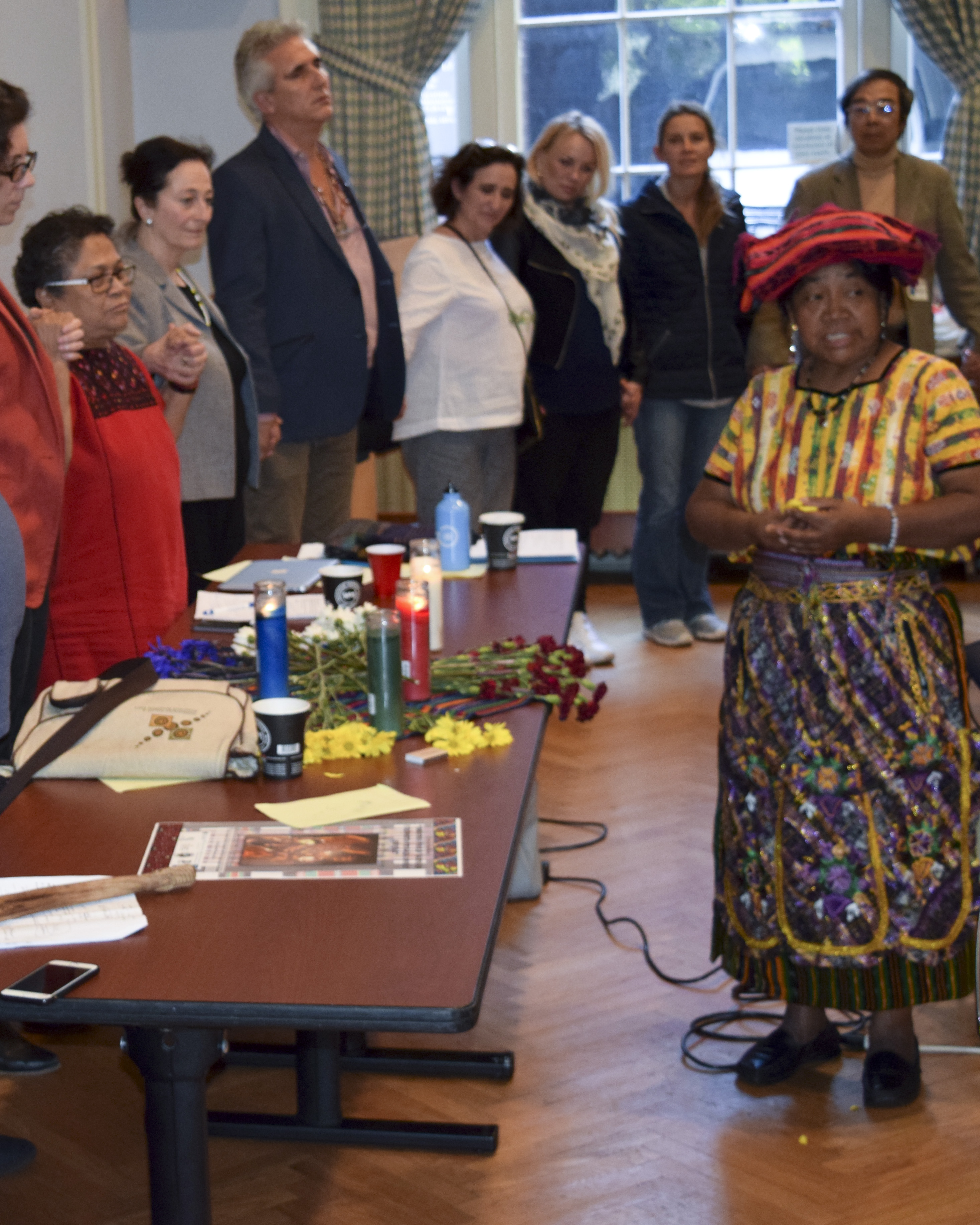
ISHR Hosts the International Seminar on Indigenous Peoples' Rights
Thursday, May 19, 2016
ISHR’s Indigenous Peoples' Rights Program hosted the International Seminar on Indigenous Peoples' Rights at Columbia University on May 14th & 15th. The Seminar discussed the causes of conflict, their impact and the challenges in peace building and conflict resolution, the international legal framework, lessons-learnt from national and regional experiences, as well as positive initiatives. A number of recommendations surfaced identifying opportunities and mechanisms for conflict prevention and resolution.
The seminar included keynotes and panels on conflict, peace and the human rights of Indigenous peoples, legal and policy challenges in contemporary non-international armed conflicts, regional perspectives and case studies from Central and South America, North America, the Arctic, Russia, the Pacific, Asia and Africa, Indigenous women and conflict, tools for peace sustainability for Indigenous peoples, the deliberate destruction of cultural heritage, and UN and other intergovernmental actions for achieving peace regarding Indigenous peoples. The Seminar explored opportunities we can seize to make progress in this area and what recommendations we can make to various parties.
The Seminar was attended by some 120 participants from Indigenous Peoples, governments, NGOs, intergovernmental organizations, and academia. Keynote speakers included Karima Bennoune, the Special Rapporteur in the Field of Cultural Rights, and Victoria Tauli-Corpuz, UN Special Rapporteur on the Rights of Indigenous Peoples. Read Ms. Tauli-Corpuz's full presentation here.
The Seminar is a contribution to the UN Permanent Forum on Indigenous Issues that has designated conflict, peace and resolution as its special theme for its fifteenth session in May 2016, as well as to the 2016 study of the UN Special Rapporteur in the field of Cultural Rights on the deliberate destruction of cultural heritage.
Click here for the full report on the the Seminar.
Speakers will included:
Victoria Tauli-Corpuz, Special Rapporteur on the Rights of Indigenous Peoples
Karima Bennoune, Special Rapporteur in the field of Cultural Rights
Sarah Cleveland, Louis Henkin Professor of Human and Constitutional Rights, Faculty Co-Director, Human Rights Institute, Columbia University, Member of the Human Rights Committee
Joan Carling, General Secretary, Asian Indigenous Peoples’ Pact, and Member of the United Nations Permanent Forum on Indigenous Issues;
Raja Devasish Roy, Member of the UN Permanent Forum on Indigenous Issues
Tony Wilson, Director, Security Force Monitor Project, Human Rights Institute, Columbia University Law School; Grand Chief
Ed John, (Akile Ch’oh) Tl’azt’en Nation , British Columbia, Canada, Member of the UN Permanent Forum on Indigenous Issues
Laila Susanne Vars, Director of GALDU (Resource Centre for the Rights of Indigenous Peoples), Member of the Sami Parliament
Ulia Gosart (Popova), American Indian Studies Center, UCLA
Myrna Cunningham, Executive Director, CADPI, Universidad Indígena Intercultural
Francisco Cali, Member of the Committee on the Elimination of All Forms of Racial Discrimination
Jose Aylwin, Co Director, Observatorio Ciudadano, Chile
Naomi Kipuri, Executive Director, Arid Lands Institute, Kenya
Albert Barume, Member, UN Expert Mechanism on the Rights of Indigenous Peoples
Emilio Alvarez Icaza, Executive Secretary of the Inter-American Commission on Human Rights
Antti Korkeakivi, Coordinator, Indigenous and Minorities Unit Research and the Right to Development Branch, Office of the UN High Commissioner for Human Rights
Pedro Santiago Posada Arango, President, Fondo Indígena de America Latina y el Caribe, Director of Indigenous, Roma, and Minorities Affairs, Colombia
Andrea Carmen, Executive Director, International Indian Treaty Council; Santi Hitorangi Atamu, Rapa Nui
Les Malezer, Co-Chair, National Congress of Australia’s First Peoples





